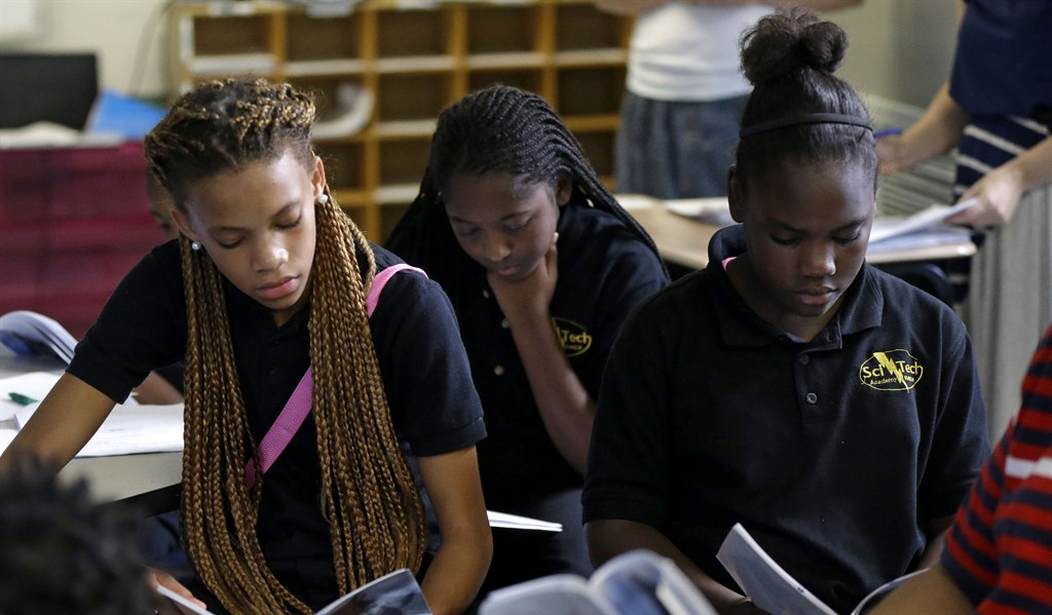In his first major speech since taking office, acting U.S. Secretary of Education John B. King Jr. addressed the National Action Network’s Martin Luther King Jr. Day event. His remarks honoring Rev. King's legacy focused on his commitment to ensuring that every child has the chance to succeed in school and in life. Specifically, Secretary King said that education is a pathway to opportunity.
Yet many Americans see that opportunity fading. While tomorrow’s workforce demands higher skills, a growing number of students are failing to meet even minimum academic standards. This is especially depressing for the 21 percent of America’s more than 50 million elementary and secondary students whose families live in poverty.
These families in particular need help. They don’t have the money to send their children to a private school, nor would they likely be able to homeschool. Similarly, they don’t have the mobility to move to a different, better school district. They are trapped in the school district assigned to their children by virtue of their zip code. And while relegating low income students to failing schools is a tragedy in itself, the additional tragedy is the harm to our nation’s economy.
Fortunately, last week was National School Choice Week. It was the perfect time to recognize what we as a society can do to lift children out of poverty and give them hope for a brighter future through better education. The turnout was incredible, with students and parents rallying for choice at over 16,000 events across the country.
Based on that success, it's clear Americans know we desperately need to have this discussion.
Recommended
A report by Junior Achievement cited an increasing number of workers in the United States who lack the education and training needed to fill the demand of the current and future job market. It is estimated that there will be a shortage of up to 1.5 million workers with bachelor’s degrees or higher in 2020, and approximately 6 million Americans will lack a high school diploma.
While many inner city schools are indeed failing, school choice makes a broader argument in favor of expanding options for parents and students. On that note, across the country, states are passing school choice legislation giving families the opportunity to choose the education that is right for their child.
School choice programs can take many forms, but are designed to provide parents with the ability to select the educational setting they believe will provide their child with the greatest opportunity to succeed.
Some states like Nevada have introduced the most far-reaching form of school choice, which puts the education funding in a saving account to be used by parents for qualified educational expenses including tuition, tutoring, textbooks, and online classes. Other states have tax credit scholarships. These allow individuals or corporations to give tax-deductible donations to non-profit organizations that grant private school scholarships.
Elsewhere, school vouchers exist in many states and give parents all or a portion of the public funding set aside for their child’s education, to be used on tuition at a school that best fits their child’s learning needs. And all but seven states have charter schools, which are public schools with more freedom and flexibility in the classroom than traditional schools.
Crucially, all of these programs have been proven to work.
Parent satisfaction in school choice programs has been high. A study released in 2015 by the Friedman Foundation focused on parental satisfaction with education savings accounts in Arizona and found all parents using the account reported they were satisfied.
The American Federation for Children recently released the findings of a new national poll conducted by Democratic polling firm Beck Research showing that nearly 70 percent of Americans support school choice.
School choice is not a partisan issue, but an American issue. Civil rights activist and education reformer Howard Fuller is often quoted as having said: “Make no mistake about it: Education reform is one of the most crucial social justice issues of our time, and I will spend the rest of my days fighting for my people, most especially those without power themselves.”
These words should inspire all of us to turn the flurry of activity around School Choice Week into results for our students. It’s time policymakers—whether in D.C., state capitals, or city halls—start fighting for those parents and kids who desperately want to climb the ladder of opportunity. The future of our country depends on it. More importantly, it’s the right thing to do.
























Join the conversation as a VIP Member